New equipment and services can bring in new customers and make your store fit for the future. C-Store looks at what retailers are investing in
Retailers are always on the lookout for the next big thing that will give them an edge over their competition, and those who want to win in the long-term know they have to invest. C-stores ploughed £858m into their businesses last year (ACS Shop Report 2017) with most (73%) investments funded by retailers’ own reserves, showing that success is a continual cycle of accumulation and re-investment.
“Investing back into any business is a must for any store owner, and with the current retail climate this couldn’t be more true for convenience retailers,” explains Jorge Pessoa, commercial director for YourCash ATM solutions.
“Consumers have been becoming more savvy for a few years now and not only base their shopping preference on price, but also on customer experience.
“Convenience retailers have a fantastic advantage which allows them to create personal relationships with their local community and regular shoppers. That said, they must invest in their services to keep up with customer expectations. We find that the vast majority of convenience retailers know this and have been driving many of the changes seen in the wider retail industry such as food to go.”
The majority of c-store investments (33%) have gone into refrigeration, which should come as no surprise in a time when the chilled category accounts for a whopping 17.2% of all sales in c-stores, with most saying this category is growing (ACS Local Shop Report).
Dennis Williams, Premier Broadway, in Edinburgh, says chilled and fresh is such an important part of the convenience store offering now that “retailers must invest in this area”.
Rikesh Patel recently made a significant investment (it cost “the same as a small house”) in ripping out and refitting his Buggsi’s store in Bramley Road, North Kensington, London. He devoted two-thirds of the investment to creating 18 new bays of chillers with doors. It might have been pricey, but Rikesh says the spend has more than paid off.
“We used to have seven bays of chillers with four devoted to drinks. Now we have 18 bays with just three devoted to drinks, so we have a lot more chilled food on offer and it’s been amazing how well the offer has taken off,” he explains.
Rikesh says the energy savings that come with the doors have been incredible, however he does admit that the doors do reduce an element of impulse purchase.
“In some ways I think the doors can stop people picking up products, but you can’t really control that,” he adds.
For those who desire the energy efficiency of a chilled display case with doors, but prefer the look and feel of an open-style case, Verco has created chillers called ‘cold shelf’ which offer the same energy savings as closed chillers but without the doors.
The chillers use a more efficient air flow which ensures less of the cold air spills into the aisles.
Graham Smith, operations manager at Verco, claims that this system can save retailers 47% off their electricity bills.
He says: “Testing both in house and on trial sites has identified running costs of our new open chilled case to mirror those of an enclosed chilled case.
“Our ‘cold shelf’ system uses ducted air passing through the adjustable shelves to achieve cooling at the very point it is required. Our use of more targeted air delivery greatly reduces air spillage from the ‘cold shelf’ case. This recently patented method of air delivery also helps to reduce the ‘cold aisle’ affect often associated with open chilled cases, creating a more pleasant customer shopping experience.”
Other than energy costs and shopper comfort, retailers have to update their chillers to ensure they meet UN regulations. Commitments set by the UN to try to cut climate change mean that retailers must shift away from hydrofluorocarbons (HFCs) – environmentally-damaging refrigerants – and replace them with more environmentally-friendly options.
A spokesperson for the ACS has discussed the importance of this regulation to c-store retailers: “Convenience stores have invested heavily in refrigeration over the past few years as food to go and chilled goods become more popular in small format retail. It’s important that retailers ensure that future investments are made with upcoming regulations in mind so that any new equipment is compliant.”
Chillers aren’t the only technology seeing technological advancement – the way shoppers pay has also changed.
Welcome Co-op franchisee Richard Inglis plans to invest about £180,000 in putting self-service tills in all three of his stores in the Southampton area.
He explains why this investment is so important: “If you don’t invest you get left behind. You can put it off, but in the long term customer service is the most important element of your service so it’s worth investing in.”
Henderson Technology recently launched its alternative EDGEPoS self-checkout system which allows retailers to switch control from the cashier’s side to the customer side, making better use of till space and eliminating the issues often associated with self-checkout weight scales.
The system has been tested at Eurospar Ashbury, in Bangor, County Down. Lynsey Wilson, store manager at the store, says: “It has been a great success, customers are really reacting to the newest addition to the store. We have had hundreds of customers trying out the new service daily and are returning to use the express tills.”
Any solution that makes for a more pleasant shopper experience is worth looking into, especially when shoppers expect the ultimate convenient experience which can even hold its own against the convenience of online shopping.
Sid Sidhu, owner of Kenilworth Budgens, in Warwickshire, recently invested £30,000 in giving his shoppers a more pleasant shopping experience. The work involved creating a new seating area at the front of the store, bringing in a community news media screen, a Snowshock Frappino machine, a gelato scoop counter and new freezers.
He says this investment started to pay off immediately. “It was essential to invest after three or four years in this location. When we first opened we had no idea what shoppers would want, but now we know our shoppers very well and we had to make our store fit for purpose.”
Sid adds that he was quite surprised to find that a very simple change in freezer layout has boosted sales in the category.
“We’ve seen a surprising increase in sales in our frozen category as we brought in a new three-door freezer from General Mills. Previously we had three separate freezers adjacent to each other, which I would’ve thought would be hard to miss but we would regularly get customers asking us if we sold different items in that category so it was clearly not catching people’s eye. We now do a frozen meal deal, too, which is clearly signposted on the freezers and this has had a great uptake.”
Sometimes it’s the small changes that can make the biggest difference. Rikesh says one investment that made a big change to his store was creating a glass frontage which allows shoppers to see in and creates a more open and inviting feel.
He adds that changing the lighting also created a very different feel in the store. He opted for an ultra-modern, industrial look with spotlights on a railing system. He knew this was a bit of a risky choice considering many of his shoppers have been shopping there for 20 or 30 years and might not like something so different, but he says he’s heard only positive feedback.
Rikesh concludes that investing in his store was the best way to compete against growing competition: “We realised we had to refit when a Co-op opened nearby. It was a huge change and therefore a risk, but now we offer everything the Co-op offers and more and so customers choose to continue to come to us.”
YourCash presses all the right buttons
Looking for a new service which can pull in new punters, but don’t have the capital to make an initial investment?
YourCash provides ATMs for business free of charge, including the free-to-use ATM, installation, maintenance, servicing, marketing materials and consumables.
Jorge Pessoa, commercial director for YourCash, says retailers benefit by adding a valuable service with no outlay other than electricity cost.
“In general, ATMs are proven to increase basket spend by an average of 65% and drive higher footfall. For example, a YourCash customer (a Best-one in Manchester) told us that he can conservatively say that the ATM drives 15-20% of his footfall.
“YourCash customers with self-fill ATMs can also save thousands each year on banking fees. Another YourCash customer (One Stop, Dudley) saves 90% on its annual banking charges by recycling the business cash through the ATM.”
YourCash offers ATMs to about 5,000 merchants across Europe. The company is part of the Euronet Worldwide group which supports the largest network of ATMs in Europe.
Pessoa concludes: “The advantage of adding an ATM service is that you don’t have to invest anything at all.
“Just free up a small amount of floor space and allow the machine to be hooked up to the store’s electricity and you’re good to go.”
Cash in on foreign exchange
A start-up money exchange app called Cashere is claiming to be able to boost footfall and save retailers time and money banking cash.
Co-founder Dipesh Patel says the app is ideal for any retailer based in an area frequented by tourists as it allows retailers to offer a foreign currency service with an exchange rate up to 10 times cheaper than traditional changers.
“Any new service which offers an advantage should be considered,” says Patel. “Customers also require somewhere where they can get all their needs fulfilled rather than going to various different places, so why shouldn’t that be at independent retailers?”
Retailers can earn extra income by selling their cash to tourists.
Patel says the app helps increase footfall for independent retailers, earns them a commission as well as saving them on banking fees.
Retailers even get to promote their business as well as any special offers they have on the app.
He adds: “We target tourists so this would open up a whole new target market for retailers as we will be directing tourists who need local currency to the retailers via the app.
“Retailers save on banking fees as many retailers get charged for banking in their cash takings into their business accounts. By selling the cash in their till they can save on these charges. Having less cash in the till also increases security for them.”
Transactions take less than three minutes to complete. Money is banked into the retailer’s business account and transaction notifications are sent to the app, where all earnings can be reviewed.
To find out more, go to www.cashere.co.uk.
















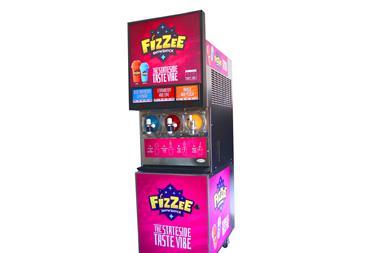
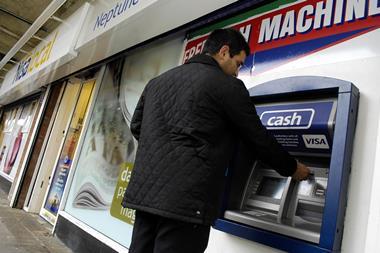
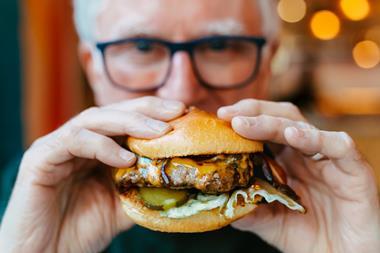
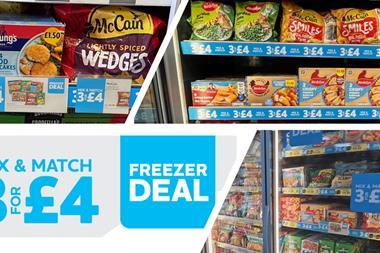
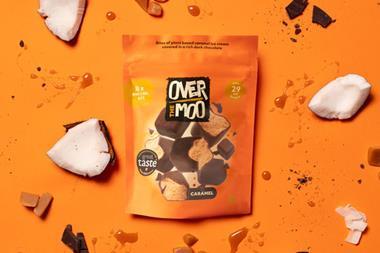
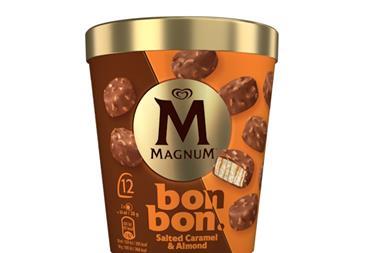
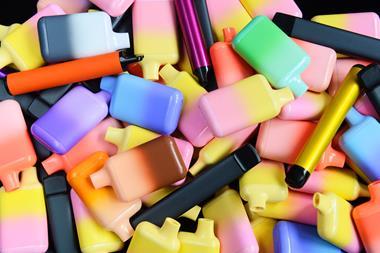



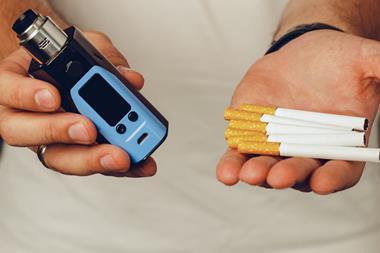

No comments yet